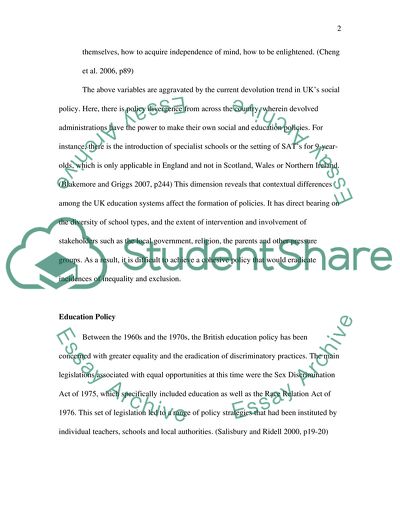Cite this document
(The Incidence of Exclusion in the United Kingdoms Education System Case Study, n.d.)
The Incidence of Exclusion in the United Kingdoms Education System Case Study. Retrieved from https://studentshare.org/education/1735582-social-policy-for-social-work-what-impact-does-school-exclusion-have-on-the-life-chances-of-young-people-what-are-the-implications-for-social-work
The Incidence of Exclusion in the United Kingdoms Education System Case Study. Retrieved from https://studentshare.org/education/1735582-social-policy-for-social-work-what-impact-does-school-exclusion-have-on-the-life-chances-of-young-people-what-are-the-implications-for-social-work
(The Incidence of Exclusion in the United Kingdoms Education System Case Study)
The Incidence of Exclusion in the United Kingdoms Education System Case Study. https://studentshare.org/education/1735582-social-policy-for-social-work-what-impact-does-school-exclusion-have-on-the-life-chances-of-young-people-what-are-the-implications-for-social-work.
The Incidence of Exclusion in the United Kingdoms Education System Case Study. https://studentshare.org/education/1735582-social-policy-for-social-work-what-impact-does-school-exclusion-have-on-the-life-chances-of-young-people-what-are-the-implications-for-social-work.
“The Incidence of Exclusion in the United Kingdoms Education System Case Study”. https://studentshare.org/education/1735582-social-policy-for-social-work-what-impact-does-school-exclusion-have-on-the-life-chances-of-young-people-what-are-the-implications-for-social-work.


